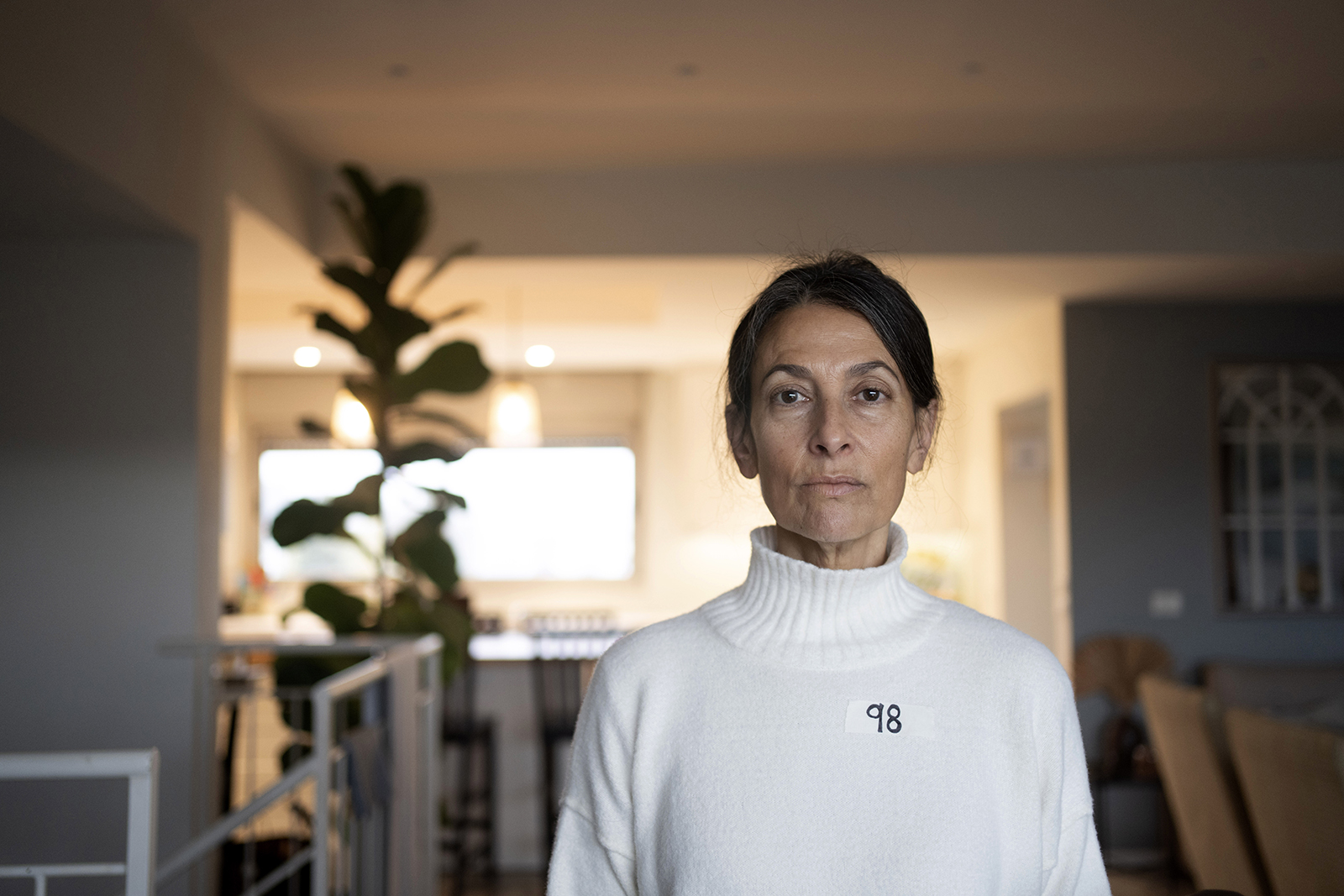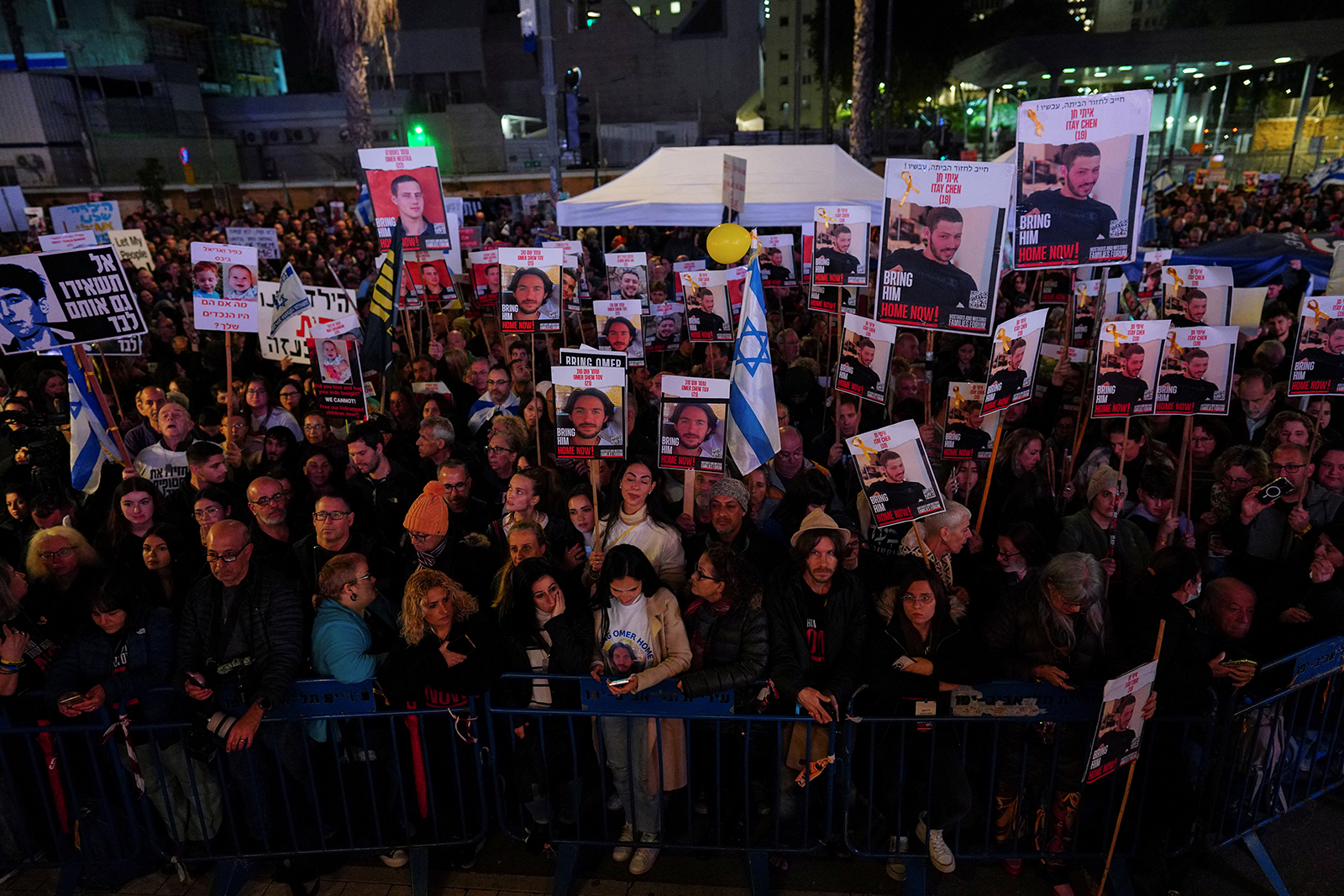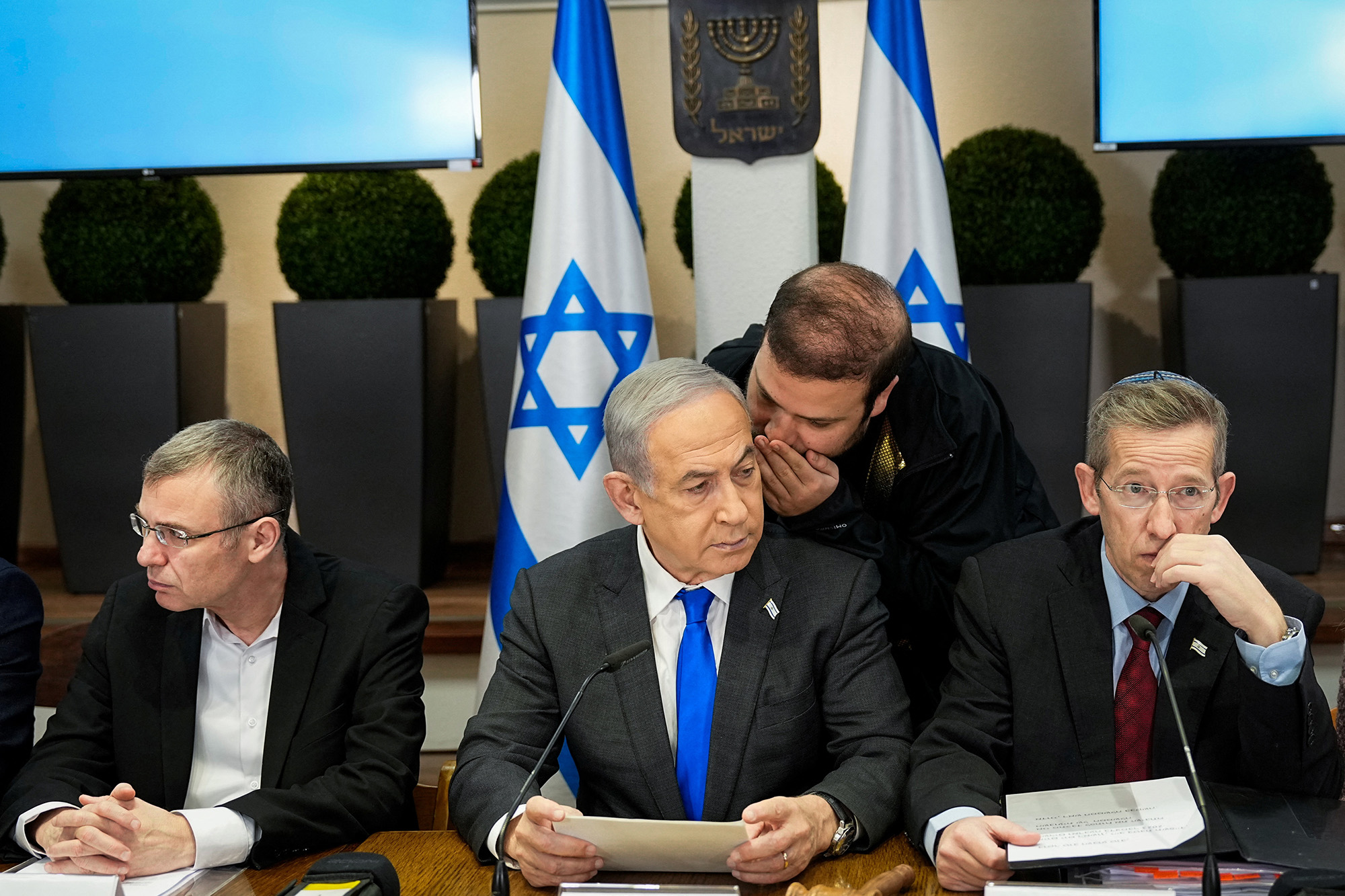
When Rachel Goldberg-Polin walked into a Swiss grocery store this week, the cashier was confused by her dress.
“What’s 102?” she asked.
“It’s the amount of days since my son was stolen from me and has been held hostage,” Goldberg-Polin replied.
In an interview with CNN in Davos, Switzerland — where she has met with world leaders to push for hostages' release — Goldberg-Polin explained how she wears a piece of tape marking each day that has passed since her son Hersh was snatched by Hamas from the Nova music festival on October 7, 2023. Hersh's left hand was blown off by a grenade, and a video obtained by CNN showed bone protruding from his wrist as he was taken to Gaza.
“Always in these conflicts it’s the innocent people who suffer. Always — throughout world history and throughout every conflict that’s happening today,” Goldberg-Polin said.
Hersh, 23, should be in India now, as part of an around-the-world trip he planned. On December 27, when he had been scheduled to leave, Goldberg-Polin went to the airport with friends and handed stickers of Hersh to passengers on his flight, asking them to send photos from places they visit.
She has since received pictures from Nepal, Thailand, Vietnam, and elsewhere, with notes saying, “Come on, Hersh, we’re waiting for you!”
“I’m praying that he’ll come home and get the help that he needs and he’ll get to go take that trip,” Goldberg-Polin said.
Watch the interview:





